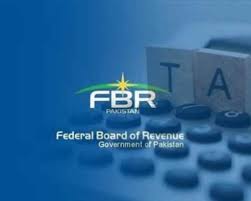The impact of Pakistan’s tax system on the startup ecosystem
Pakistan is a country with immense potential for entrepreneurship and innovation. It has the fifth largest population in the world, with a median age of 22 and a large number of English speakers. It also has a fast-growing middle class, a high penetration of mobile broadband, and a vibrant tech talent pool. These factors make Pakistan an attractive market for startups and digital services.
However, Pakistan also faces many challenges that hinder the growth and development of its startup ecosystem. One of these challenges is the tax system, which is often perceived as complex, burdensome, and unfriendly to startups. In this blog post, we will explore how the tax system affects the startup ecosystem in Pakistan, and what can be done to improve it.
The current state of the tax system in Pakistan
According to the World Bank’s Doing Business 2020 report, Pakistan ranks 161st out of 190 countries in the ease of paying taxes indicator. The report estimates that it takes an average of 294 hours per year for a medium-sized company to prepare, file, and pay taxes in Pakistan, compared to 237 hours in South Asia and 159 hours globally. The report also estimates that the total tax rate (including corporate income tax, labor taxes, and other taxes) is 33.8% of profits in Pakistan, compared to 32.4% in South Asia and 40.5% globally.
The tax system in Pakistan consists of federal, provincial, and local taxes. The federal taxes include corporate income tax, sales tax, customs duty, excise duty, withholding tax, and others. The provincial taxes include sales tax on services, property tax, stamp duty, motor vehicle tax, and others. The local taxes include octroi (a levy on goods entering a city), professional tax, entertainment tax, and others.
The tax system in Pakistan is often criticized for being complex, inconsistent, and overlapping. For example, there are different rates and rules for corporate income tax depending on the sector, location, and legal status of the business. There are also multiple sales taxes levied by different authorities on different goods and services. Moreover, there are frequent changes and amendments in the tax laws and regulations, which create uncertainty and confusion for taxpayers.
The impact of the tax system on the startup ecosystem
The tax system in Pakistan has a significant impact on the startup ecosystem, both directly and indirectly. Some of the main effects are:
– High compliance costs: Startups have to spend a lot of time and resources to comply with the tax requirements, which reduces their profitability and productivity. They also have to deal with multiple tax authorities and agencies, which increases their administrative burden and exposes them to corruption and harassment.
– Low incentives for investment: Startups face difficulties in attracting investors due to the high tax rates and low transparency of the tax system. Investors also face challenges in claiming tax credits or deductions for their investments in startups. Furthermore, there are no specific tax incentives or exemptions for startups or angel investors in Pakistan.
– Limited access to finance: Startups have limited access to formal sources of finance such as banks or venture capitalists due to the lack of adequate financial records and documentation required by the tax authorities. They also face high withholding taxes on their revenues and payments from customers or suppliers.
– Reduced innovation and competitiveness: Startups have less scope for innovation and experimentation due to the rigid and outdated tax laws that do not cater to the needs of the digital economy. They also face unfair competition from informal or unregistered businesses that evade taxes or enjoy preferential treatment from the tax authorities.
The way forward for improving the tax system for startups
There is a need for reforming the tax system in Pakistan to make it more conducive for startups and entrepreneurship. Some of the possible measures are:
– Simplifying and harmonizing the tax structure: The tax structure should be simplified and harmonized across different levels and jurisdictions to reduce compliance costs and avoid double taxation. There should be a single sales tax on goods and services at the federal level, with a revenue-sharing mechanism with the provinces. There should also be a uniform corporate income tax rate for all sectors and locations.
– Introducing specific tax incentives for startups: The tax system should provide specific incentives for startups such as lower tax rates, exemptions, credits, or deductions for a certain period or amount of income or investment. There should also be incentives for angel investors or venture capitalists who invest in startups.
– Enhancing transparency and accountability of the tax administration: The tax administration should be modernized and digitized to improve efficiency and service delivery. There should be online platforms. These things will lead to better tax system for startups.
